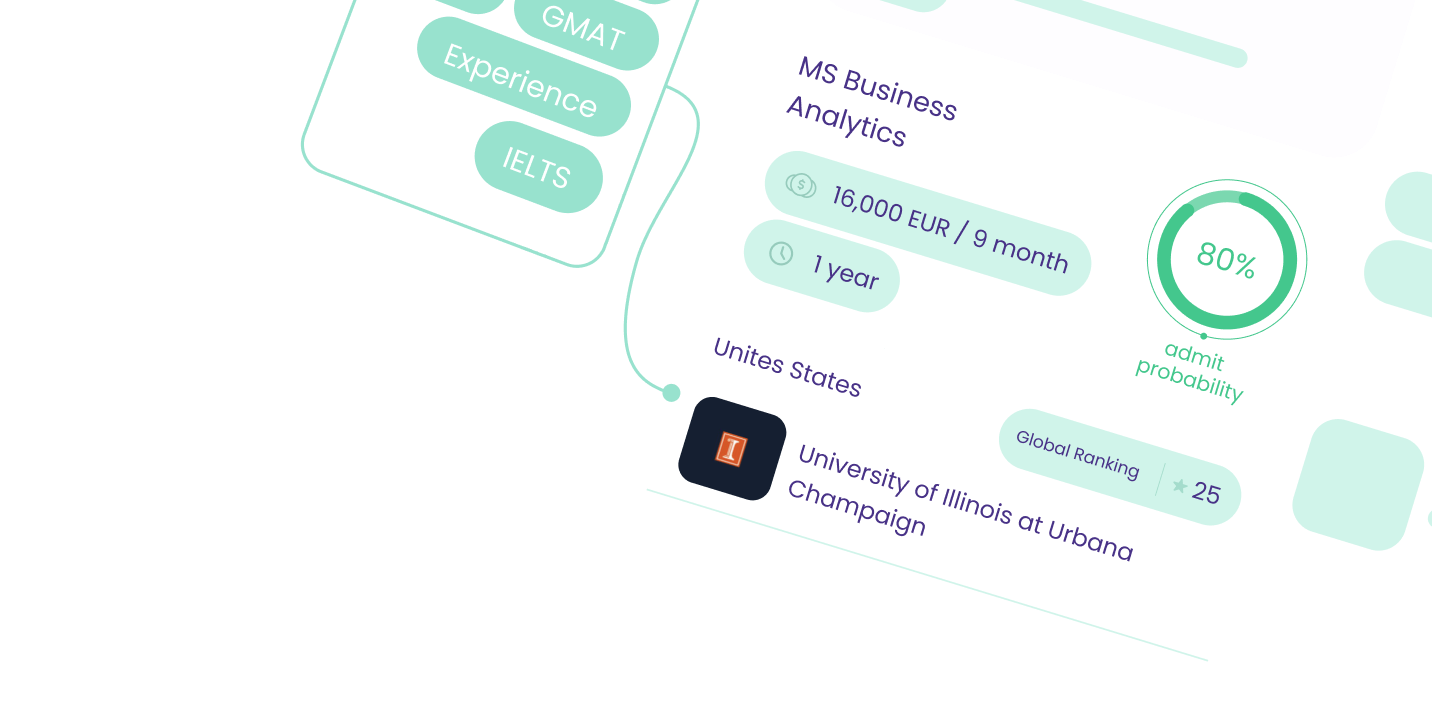Non-native English speakers must pass the Test of English as a Foreign Language (TOEFL) to pursue further education or employment possibilities in English-speaking nations. The TOEFL test evaluates a candidate’s ability to read, write, speak, and listen in English.
A strong foundation in English language proficiency and successful test-taking techniques are necessary to get a high TOEFL score. In this regard, TOEFL tips and strategies for success play a crucial part in boosting a candidate’s performance on the exam.
The exam’s layout should be familiarised, practice tests and sample questions should be taken, time management methods should be used, and good reading and listening comprehension abilities should be developed. However, success on the TOEFL is still possible if you follow the appropriate advice and tactics.
There are various ways to get a good score, including knowing English, comprehending the exam structure, and studying with practice questions.
This article will offer helpful TOEFL tips and strategies on how to prepare effectively, how to approach tests, and what areas to concentrate on to succeed on the exam.
Table of Contents
What is the Right Time to Start Your TOEFL Preparation?

An exam called the TOEFL is used to evaluate a non-native speaker’s level of ability in the English language. It is essential for many academic programs, scholarship applications, and employment opportunities in English-speaking countries.
Preparing to get the desired score on this test is essential. The ideal timing to begin your TOEFL preparation depends on several variables, including your present level of English proficiency, your desired score, and the amount of free time you have. Nonetheless, it is often advised to begin preparing at least 2-3 months before your exam date.
Beginning your TOEFL preparation early will allow you ample time to familiarise yourself with the exam’s structure, practise the various portions, and determine your strengths and weaknesses. You may develop a unique study plan using this technique, and you can concentrate on your weak areas. Starting early also enables you to steadily develop your English language abilities, such as vocabulary, grammar, and syntax.
A Pro Advice for You
It is advisable to start getting ready early if you have little prior knowledge of academic English. This allows you to enhance your reading, writing, speaking, and listening abilities while learning the academic language.
But starting early can help you maintain and improve your language ability. On the other hand, if you have a solid foundation in English, you may need less time for preparation.
Effective Preparation Strategies to Ace the TOEFL Exam

Preparing for the TOEFL exam might be challenging, but with the appropriate methods, you can improve your chances of passing the test. The exam is frequently accepted as a university and college admission requirement worldwide.
The following preparation methods will assist you in passing the TOEFL exam.
1. Understand the exam format
Understanding the test’s structure before studying for the TOEFL is crucial. The exam has four components: speaking, writing, listening, and reading. Your ability with several facets of the English language is tested in each session. By understanding the exam’s structure, you may design a study schedule that concentrates on the areas where you need to progress.
2. Choose a study guide
Obtaining a study guide is a terrific additional method of TOEFL preparation. An excellent TOEFL book will guide you through each area, including helpful tips, hints for strategies, sample questions, and answers. Many excellent TOEFL books are available, as well as several less-than-stellar ones.
3. Practice with sample tests
Studying through practice tests is one of the most excellent methods to prepare for the TOEFL exam. You may learn the questions asked in each exam segment by taking these tests. Free sample exams may be found on a lot of websites. You may evaluate your abilities and weaknesses and work on improving them by putting your skills to the test with these tests.
4. Improve your vocabulary
Successfully passing the TOEFL exam requires having a good vocabulary. In tests, complicated vocabulary terms are frequently used in reading and listening. You can read books, periodicals, and newspapers written in English to increase your vocabulary. To learn new words, you may also utilise vocabulary-building applications.
5. Enhance your listening and speaking skills
Many examinees find the TOEFL’s listening section complicated. You may view English-language movies and TV shows and listen to English-language podcasts to hone your listening abilities. You may also practise taking notes when listening to English-language lectures or speeches.
You must respond in English to questions and suggestions during the speaking portion of the TOEFL exam. You may practise speaking with a native English speaker, participate in English-language discussion groups, or use speech recognition software to check your grammar and pronunciation to enhance your speaking abilities.
6. Improve your writing speed
Based on a particular topic, you must prepare an essay for the TOEFL writing portion. You can practise writing essays on many subjects to prepare for this portion. Writing while keeping track of the time will help you better manage your time by giving yourself enough time to outline your writing, compose the content, and review it.
Things You Need to Do Before the Test

Your ability to read, write, listen, and speak English is evaluated on the TOEFL. Universities, colleges, and other organisations worldwide accept the exam largely.
To get a high TOEFL score, preparation is essential. Before taking the TOEFL exam, you should do the following:
1. Register for the Test
Registration is the initial step in preparing for the TOEFL exam. The test can be registered online or in person at a testing location. Make sure the exam date you pick allows you enough time to prepare effectively. Moreover, you should familiarise yourself with exam costs and payment options as they might change depending on where you take the test.
2. Research the Test Format and Content
Learning about the TOEFL’s structure and subject matter is crucial before you begin your preparations. The test has four areas: reading, listening, speaking, and writing. The test lasts a few hours, with time limits on each component. You may create a study strategy and determine your strengths and weaknesses by comprehending the test’s format and content.
3. Make a study schedule
A study plan is necessary to prepare for the TOEFL. A study schedule will enable you to manage your time and concentrate on your areas of weakness. Practice exams, exercises in the English language, and study sessions should all be part of your study schedule. Set realistic objectives and keep tabs on your development.
4. Get familiar with test strategies
To get a high TOEFL score, you must learn test-taking techniques. Your time management, accuracy, and avoidance of frequent errors may all be improved using test techniques. Exam methods can be discovered online or in books with practice tests.
5. Attempt practice exams
Practice exams are a great approach to preparing for the TOEFL. You’ll learn more about the examination format and the kinds of questions you might anticipate by taking practice exams. Online practice exams are available for free, and practice test books are also available. You can find your areas of weakness and develop your test-taking abilities by taking practice exams.
6. Take Enough Sleep
Getting adequate sleep is essential to do well on the TOEFL. Responding to questions without sleep might be challenging since it affects your memory and attention. The night before the test, make sure you get adequate rest.
Is it Necessary to Practise Sample Questions and Give Mock Tests? Lets Understand

Students’ proficiency in speaking, reading, writing, and understanding English is tested on the TOEFL. The TOEFL is a difficult test; thus, it’s necessary to recognize the importance of preparation. Practising sample questions and taking practice examinations are two ways to ensure success.
The exam structure, the sorts of questions, and the time limits may all be familiarised by practising example questions. Also, it enables them to recognize their advantages and disadvantages in each exam segment. They may improve their questioning technique via repeated practice, increasing efficiency and accuracy.
It is beneficial to simulate the TOEFL exam experience by administering practice exams. It offers students an immediate evaluation of their performance, which can help them pinpoint areas that need improvement. With its assistance, they can better manage their time, essential for performing well on the test.
Sample questions and practice exams can also identify problem areas like vocabulary, grammar, reading comprehension, and writing. Using sample questions and practice examinations to prepare also has the critical benefit of lowering test anxiety.
Those who have taken many practice exams will be less likely to experience nervousness on test day, enabling them to perform better and get higher results.
A Few Tips for the TOEFL Exam Day

The TOEFL exam might be stressful on the test day, but preparation is essential to improving your chances of doing well. These tips will assist you in performing well on the day of the TOEFL exam.
1. Have a restful night’s sleep
It’s essential to have a decent night’s sleep the night before the TOEFL exam. Your focus, memory, and capacity for critical thought can all be negatively impacted by sleep deprivation. Get at least 7 to 8 hours of sleep the night before the exam.
2. Arrive early at the testing centre
To minimise last-minute tension, arriving early at the exam location is crucial. To complete the check-in process, which involves displaying your ID, taking your picture, and storing your belongings, get there at least 30 minutes before the exam.
3. Bring valid identification
You must present a legal identification document, such as a passport, licence, or national identification card, in order to establish your identity. Your ID name and the name on your TOEFL registration must be the same.
4. Wear comfortable clothing
It is essential to dress comfortably for the exam to prevent discomfort and stress. A rough fabric or accessories that could generate disturbance while you move should be avoided when wearing clothing.
5. Read the guidelines thoroughly
Understanding the structure and specifications of each segment of the TOEFL exam requires careful reading of the instructions. Follow the directions carefully, respond to all the questions, and use your time efficiently.
6. Stay calm and focused
On the TOEFL exam, being composed and attentive is vital to score well. Take a deep breath and work to relax if you are feeling anxious or nervous. Always remember that the TOEFL exam is just a test and that you have studied for it.
Summary

Combining appropriate tactics and suggestions that cover each portion of the exam is necessary for TOEFL success. Examinees can enhance their performance by learning time management techniques, improving reading and writing skills, and increasing their vocabulary.
Moreover, practising for the test and learning the structure can all help you prepare better. Success in the TOEFL depends on constant effort, devotion, and confidence.


Frequently Asked Questions
Is it tough to pass the TOEFL on the first attempt?
Passing TOEFL on the first attempt can be challenging. However, with adequate preparation, practice, and understanding of the test format, passing is achievable.
Are six months enough to prepare for the TOEFL Exam?
Yes, six months is generally enough time to prepare for the TOEFL exam, as long as you dedicate sufficient time each week to studying and practicing.
Will you get options to select your TOEFL Examination Center?
Yes, you will have the option to select your TOEFL examination centre during the registration process.
What score do I need to get on the TOEFL Exam?
Generally, a score of 80 or higher is regarded as satisfactory, while some programs or colleges may need a higher score of 90 or 100.





Comments (0)